-
Product Name
SND1 antibody
- Documents
-
Description
SND1 Mouse Monoclonal antibody. Positive IF detected in HepG2 cells. Positive IHC detected in human pancreas tissue, human colon cancer tissue. Positive WB detected in HeLa cells, Jurkat cells. Positive IP detected in HeLa cells. Observed molecular weight by Western-blot: 101 kDa
-
Tested applications
ELISA, IF, WB, IHC, IP
-
Species reactivity
Human,Mouse; other species not tested.
-
Alternative names
100 kDa coactivator antibody; EBNA2 coactivator p100 antibody; p100 antibody; p100 co activator antibody; SND1 antibody; TDRD11 antibody
-
Isotype
Mouse IgG1
-
Preparation
This antibody was obtained by immunization of SND1 recombinant protein (Accession Number: NM_014390). Purification method: Protein G purified.
-
Clonality
Monoclonal
-
Formulation
PBS with 0.02% sodium azide and 50% glycerol pH 7.3.
-
Storage instructions
Store at -20℃. DO NOT ALIQUOT
-
Applications
Recommended Dilution:
WB: 1:500-1:5000
IP: 1:200-1:2000
IHC: 1:20-1:200
IF: 1:20-1:200
-
Validations
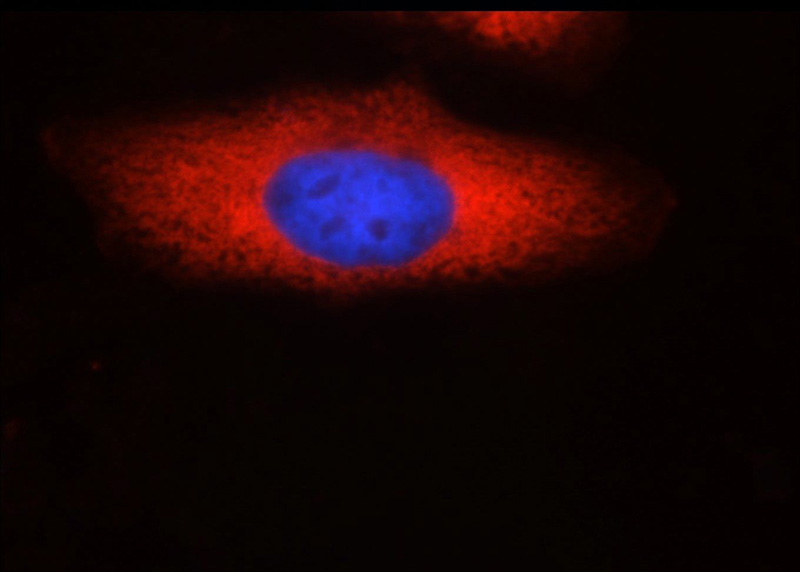
Immunofluorescent analysis of HepG2 cells using Catalog No:107598(SND1 Antibody) at dilution of 1:50 and and Rhodamine-labeled goat anti-mouse IgG (red).
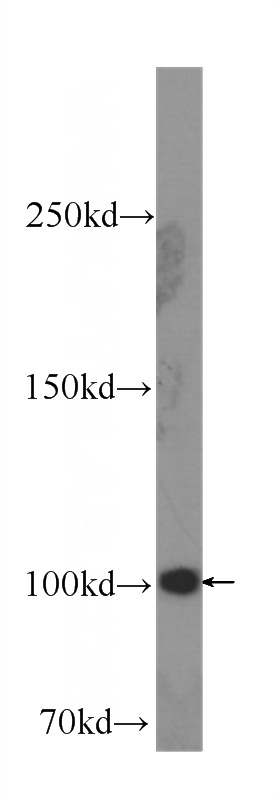
HeLa cells were subjected to SDS PAGE followed by western blot with Catalog No:107598(SND1 Antibody) at dilution of 1:1000
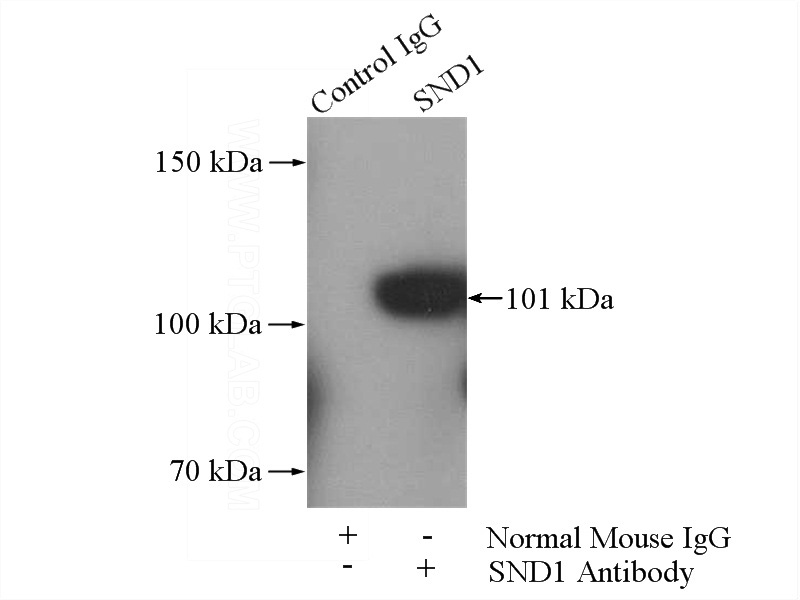
IP Result of anti-SND1 (IP:Catalog No:107598, 5ug; Detection:Catalog No:107598 1:500) with HeLa cells lysate 1400ug.
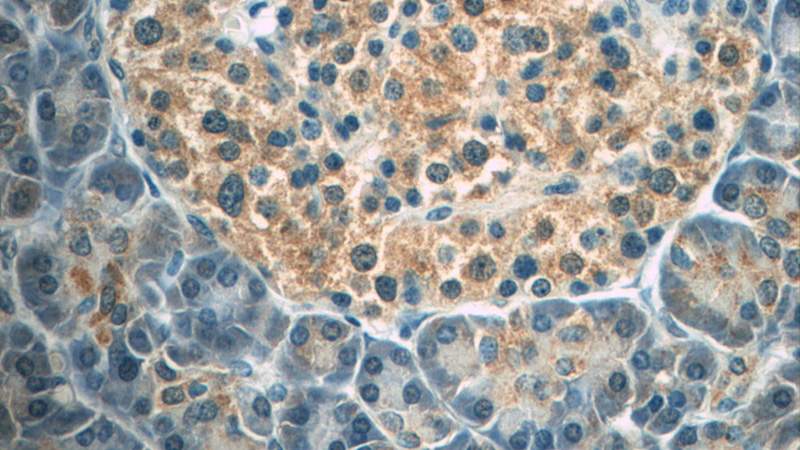
Immunohistochemistry of paraffin-embedded human pancreas tissue slide using Catalog No:107598(SND1 Antibody) at dilution of 1:50 (under 40x lens)
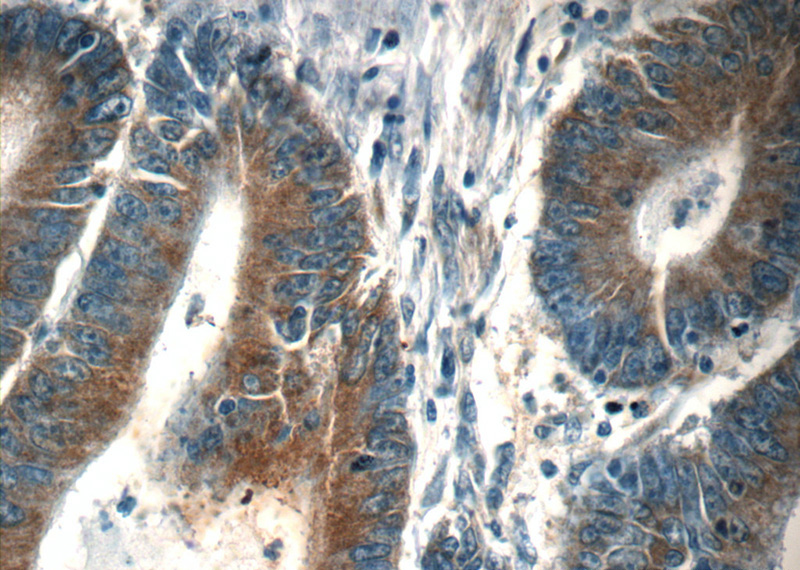
Immunohistochemistry of paraffin-embedded human colon cancer tissue slide using Catalog No:107598(SND1 Antibody) at dilution of 1:50 (under 40x lens)
-
Background
Staphylococcal nuclease domain-containing 1 (SND1), is a multifunctional nuclease that consists of four staphylococcal nuclease domains and a tudor domain. SND1 acts as a coactivator that facilitates transcriptional activity of STAT5, 6 and c-Myc. SND1 is a comprising part of the RNA-induced silencing complex(RISC), and takes part in the functions of miRNA, regulates transcription through transcriptional coactivation, RNA interference, RNA splicing, and RNA editing. Higher level of SND1 has been found in colon cancer and prostate cancer, can promote HCC angiogenesis in xenograft model through induction of angiogenic factors.
Related Products / Services
Please note: All products are "FOR RESEARCH USE ONLY AND ARE NOT INTENDED FOR DIAGNOSTIC OR THERAPEUTIC USE"
